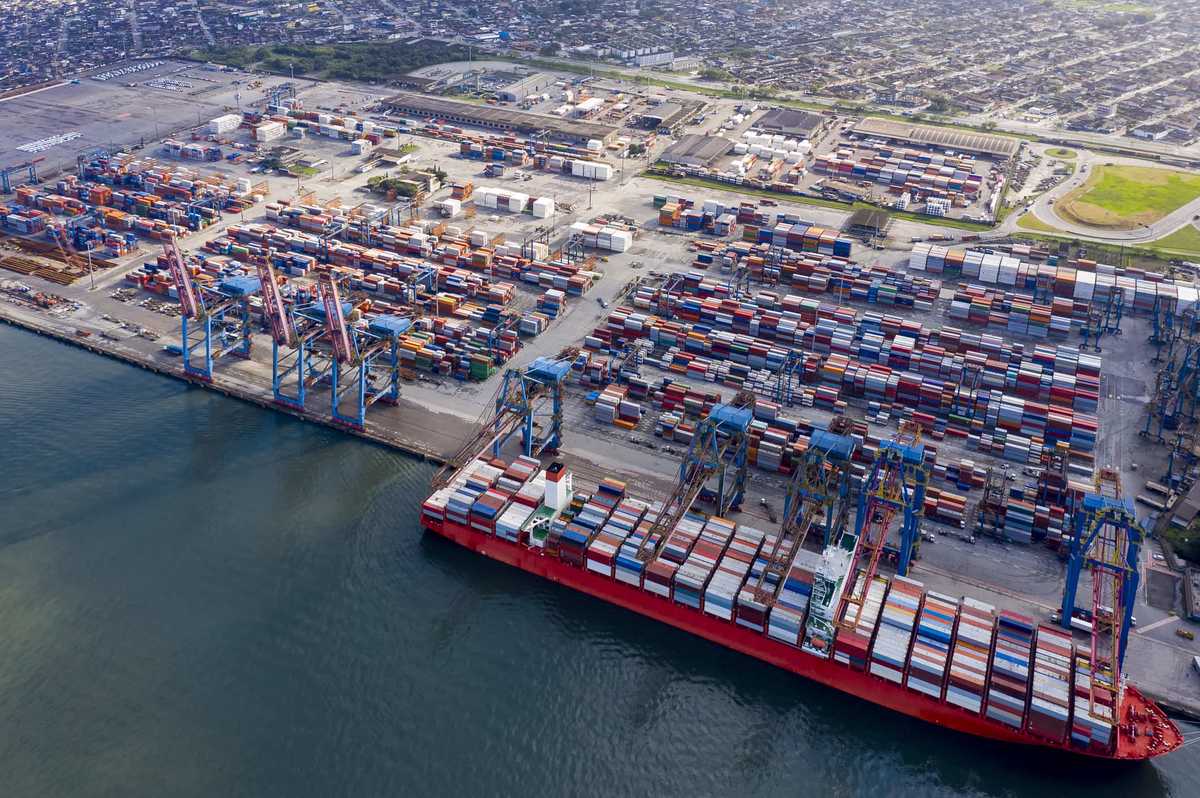ICCT outlines guidelines for Brazil's maritime national action plan
The International Council on Clean Transportation (ICCT) has urged Brazil to reduce its maritime emissions primarily through energy efficiency measures and using drop-in alternative fuels.
 PHOTO: Aerial view of ship loading at Santos port in Sao Paulo, Brazil. Getty Images
PHOTO: Aerial view of ship loading at Santos port in Sao Paulo, Brazil. Getty Images
Brazil's “relatively young fleet,” which is approximately 15 years old, can benefit from drop-in alternative fuels like biofuels without modifying its propulsion or fuel supply systems, according to ICCT.
Measures to mitigate Brazilian maritime emissions
The ICCT also advocates replacing fossil fuels with alternative fuels that have lower lifecycle emissions. These include liquefied natural gas (LNG), bio-methanol and e-methanol, biofuels, green hydrogen, green ammonia and other synthetic marine fuels. In addition, wind-assisted propulsion is also an option.
In addition, ICCT has suggested technical and operational measures like applying energy efficiency indexes, slow steaming, hull cleaning and lubrication to reduce onboard energy consumption.
During slow steaming, ships are deliberately slowed down to about 12-19 knots instead of the usual speeds of 20-24 knots. Although this practice results in a reduction in engine power and fuel consumption, it has also raised some concerns since it significantly increases the vessel's travel time.
Hull cleaning and lubrication can reduce ship drag and improve fuel efficiency. They also enable ships to cruise at lower speeds yet maintain the same speed.
Further, ICCT has urged Brazilian port authorities to provide on-shore power for ships at berth and alternative fuel bunkering infrastructures.
“However, such transformations require intensive investments in capital,” it points out. “These investments in infrastructure and port facilities are generally demand-driven, but shipping companies are unlikely to invest in alternative fuels or onshore power if there is no infrastructure available in ports.”
Prioritising efforts at the national level
As a solution, ICCT has encouraged the oil and gas sector to proactively push for maritime decarbonisation, since the Brazilian fleet is mostly associated with the oil and gas industry.
To set the energy efficiency standards for operating ships, it has requested Brazil’s shipping sector to actively comply with IMO’s Efficiency Design Index (EEDI), Energy Efficiency Existing Ships Index (EEXI) and Carbon Intensity Index (CII) regulations.
It has also asked the shipping companies to “pay special attention to decarbonising supply vessels, which operate only in short-distance transport and are responsible for 37% of the shipping emissions in its Exclusive Economic Zone.”
A target inclusion and certification program for alternative fuels is also proposed as a solution to promote shore power and bunkering infrastructure in national ports.
Lastly, it has called on the government to introduce long-term emission reduction mandates to encourage the use of low- and zero-emission fuels onboard vessels, as well as economic incentives for zero-emission ship development and retrofits.
By Konica Bhatt
Please get in touch with comments or additional info to news@engine.online






